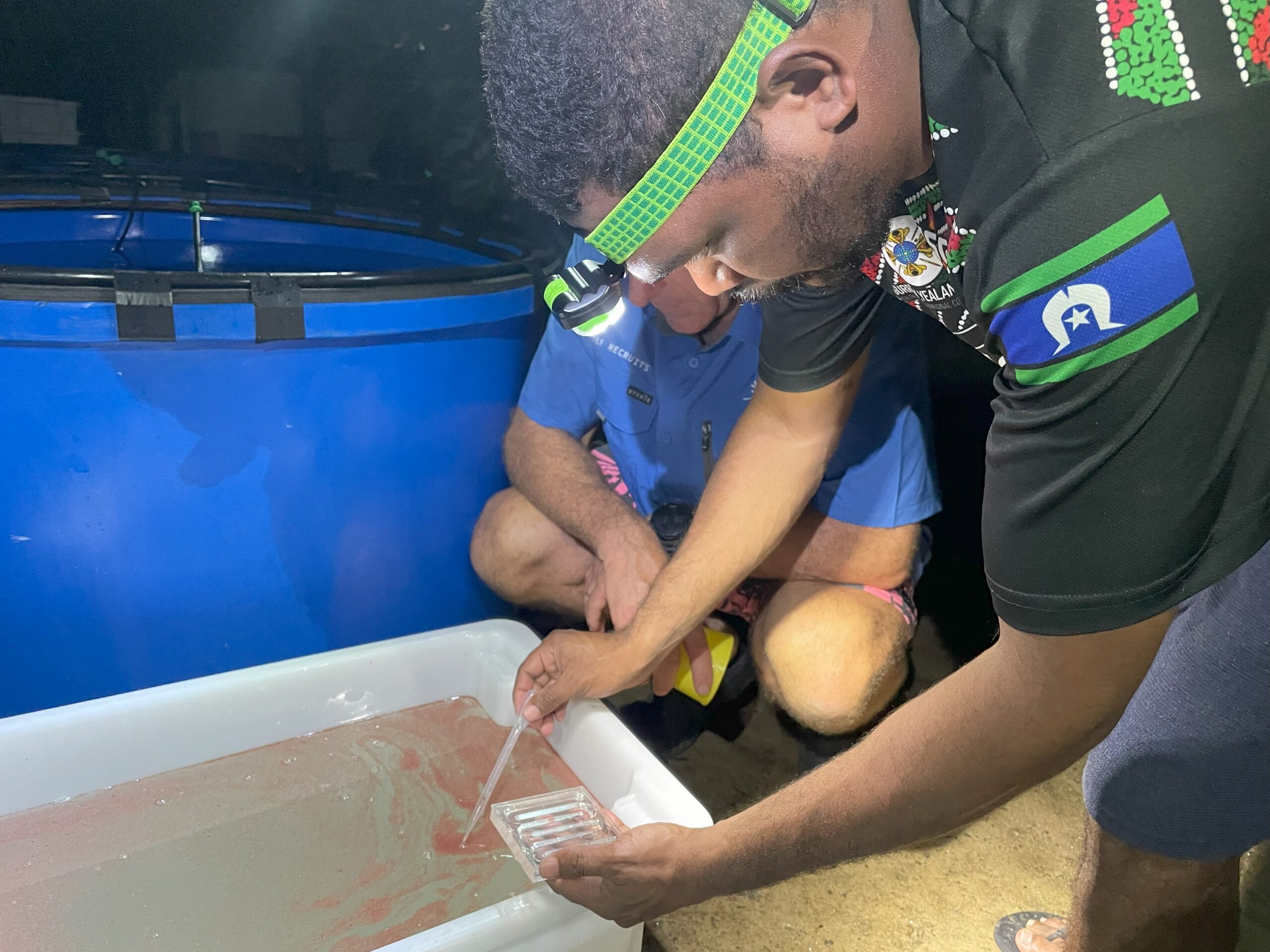The Great Barrier Reef stands as one of the world’s oldest natural wonders, with First Nations people living alongside the evolution of this vast coral ecosystem for millennia.
This week, as the Great Barrier Reef births the new generation of corals in the annual mass spawning event, Traditional Owners are studying this ancient marine ecosystem with scientists – observing the spawning process from fertilisation to the transformation of larvae into baby corals.
The seven-day ‘Spawning School’ is led by James Cook University’s TropWATER under the Cairns-Port Douglas Reef Hub in collaboration with Reef Recruits and local Land & Sea Rangers, funded by the partnership between the Australian Government’s Reef Trust and the Great Barrier Reef Foundation.
“We as First Nations people have co-existed with this complex ecosystem for thousands of years, and with that comes a deep connection with the Great Barrier Reef,” said Stirling King, Gunggandji-Mandingalbay Yidinji Land and Sea Ranger.
“We are excited, as Rangers, to connect our Elders and community members with coral spawning and share our passion for this special time of year on the Reef.”
Project Lead JCU TropWATER’S Dr Katie Chartrand said understanding coral spawning processes and building capacity for Traditional Owners was a practical way for communities to engage and explore the science and culture of this annual event.
“This project is driven by the need to integrate Indigenous perspectives with western science to understand, preserve, and navigate the challenges facing the Reef,” she said.
“Over the next week, our focus will be on the intricacies of the spawning process. We’ll be equipping rangers with the essential skills for active involvement in reef recovery techniques.
“The Spawning School project aims to enhance education and facilitate two-way knowledge exchange for future Reef restoration programs.”
Mass coral spawning serves as the reef’s natural recovery time, replenishing reefs in a once-a-year event. However, given that only a fraction of corals naturally survives the larval stage, there is a need to explore ways to harness spawning outputs to help expedite the recovery of damaged reefs.
Dr Chartrand said the corals, collected from healthy reefs on Yirrganydji sea Country, will spawn in the JCU Eduquarium, “here the baby corals will then be raised in the lab and settled on devices with an opportunity for Rangers to participate in research led by Reef Recruits.”
Reef Recruits ecologist Dr Kerry Cameron says incorporating a research experiment into the Spawning School program offers additional learning opportunities for Rangers.
“Coral spawning, a rare event, is the focus of the Spawning School. It’s an opportunity to gain fresh insights into larval behaviour. We explore spawning, conduct experiments on larval readiness to settle, and provide rangers a platform to actively contribute to discussions on research findings.”
Coral spawning and the work to rear the larvae will also be shared back into community through an Indigenous-led production company Reef Cast. Malachi Johnson, host of Reef Cast, will drive communication of this project to communities.
“This collaboration between Traditional Owners and researchers is significant, because working together in all areas of research is key to sustainable custodianship of the Reef. Walking together, not in front or behind but side by side in solidarity,” he said.
The Cairns-Port Douglas Reef Hub is funded by the partnership between the Australian Government’s Reef Trust and the Great Barrier Reef Foundation. The Hub is coordinated by TropWATER at James Cook University and enabled by the partnership’s Community Reef Protection and Traditional Owner Reef Protection components, and the Reef Restoration and Adaptation Program with a network of local partners.

